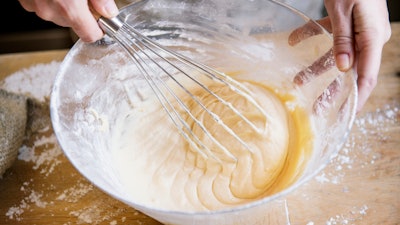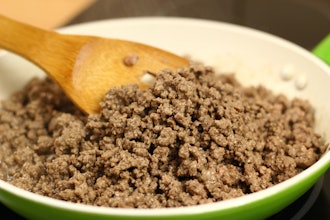
CDC, public health and regulatory officials in several states, and the U.S. Food and Drug Administration (FDA) are collecting different types of data to investigate a multistate outbreak of E. coli O121 infections linked to cake mix.
Epidemiologic Data
As of July 27, 2021, 16 people infected with the outbreak strain of E. coli O121 have been reported from 12 states (see map). Illnesses started on dates ranging from February 26, 2021 to June 21, 2021 (see timeline).
Sick people range in age from 2 to 73 years, with a median age of 13, and 100% are female. Of 16 people with information available, 7 have been hospitalized. One person has developed a type of kidney failure called hemolytic uremic syndrome (HUS), and no deaths have been reported.
The true number of sick people in an outbreak is likely much higher than the number reported, and the outbreak may not be limited to the states with known illnesses. This is because many people recover without medical care and are not tested for E. coli. In addition, recent illnesses may not yet be reported as it usually takes 3 to 4 weeks to determine if a sick person is part of an outbreak.
State and local public health officials are interviewing people about the foods they ate in the week before they got sick. Of the eight people interviewed, six (75%) reported tasting or eating raw batter made with a cake mix. People reported buying different varieties and brands of cake mix.
Laboratory and Traceback Data
Public health investigators are using the PulseNet system to identify illnesses that may be part of this outbreak. CDC PulseNet manages a national database of DNA fingerprints of bacteria that cause foodborne illnesses. DNA fingerprinting is performed on bacteria using a method called whole genome sequencing (WGS). WGS showed that bacteria from sick people’s samples are closely related genetically. This means that people in this outbreak likely got sick from the same food.
FDA is conducting a traceback investigation using purchase records from locations where sick people bought cake mix to try to determine a common cake mix brand or production facility.
Public Health Actions
CDC advises people not to eat raw cake batter, whether made from a mix or homemade. Eating raw cake batter can make you sick. Raw cake batter can contain harmful bacteria. Bacteria are killed only when raw batter is baked or cooked.
Follow safe food handling practices when you are baking and cooking with cake mixes, flour, and other raw ingredients such as eggs.






















